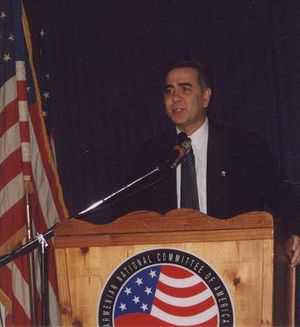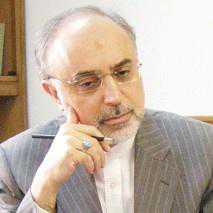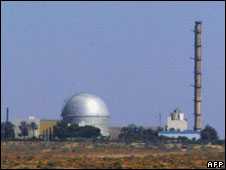Cannot Pretend to be
Both Pro-Israeli and Pro-Palestinian

Publisher, The California Courier
Playing the skillful political games of their Ottoman predecessors, Turkey’s current masters present their country under various guises — as European and Middle Eastern, Islamic and secular, pro-Arab and pro-Israeli.
It now appears that the end is near for at least one of these Turkish charades. Israeli officials have finally awakened from their prolonged coma to discover that their erstwhile “strategic partner” is far more hostile than their Arab enemies.
For a long time, Turkish leaders have been calling the Israelis all sorts of unsavory names and accusing Israel of committing barbaric acts, crimes against humanity, and genocide. Strangely, Israel has shown little indignation, even in the face of persistent racist and anti-Semitic outbursts by large segments of the Turkish public.
The latest display of Turkish hostility was the exclusion of Israel from a multinational military exercise which was to start in Turkey on October 12. In protest, the United States, Italy and Holland pulled out of these maneuvers, causing their cancellation. In a move designed to further irritate the Israelis, Turkey announced that it would instead hold joint military exercises with Syria, Israel’s main adversary.
Turkey’s Prime Minster Rejeb Erdogan told the Anatolia Press Agency last week that he had banned Israel from the military drill in response to the wishes of the Turkish public. “Turkey does not take orders from anyone in regards to its internal affairs,” Erdogan boasted. Some Turkish officials indicated that the ban was instituted because the Israeli jets assigned to the exercise had participated in the Gaza bombings earlier this year.
This episode marks a major escalation of the long-standing Turkish bitterness towards Israel. For the first time, the Turkish military joined the civilian government in adopting an anti-Israeli position. Furthermore, Turkey went beyond mere verbal condemnation to taking concrete action. For years, the Israeli government was willing to swallow insults from Turkish officials, as long as its Air Force was permitted to make practice runs in the vast Turkish airspace, shared intelligence, and sold military hardware to Turkey.
Making matters worse, Israelis were deeply offended by the broadcast of a Turkish show on state TV last week, depicting graphic scenes of Israeli soldiers killing Palestinian children and committing other atrocities.
Israel’s Foreign Minister Avigdor Lieberman reacted by summoning the Turkish ambassador and accused Turkey of inciting hatred against Israelis. Lieberman stated that not even Israel’s enemies would air such a hostile TV series. Israel’s Deputy Prime Minister Silvan Shalom urged Turkey “to come to its senses.” Another Israeli official stated: “We need to stop accepting the Turkish dictates and humiliations. It is inconceivable that they should insult us at every opportunity, and we should continue to hold our tongues.”
Israel’s Prime Minister Benjamin Netanyahu categorically rejected any future mediating role for Turkey in talks with Syria. An unnamed “senior Israeli official” was quoted by Haaretz as stating that the strategic ties with Turkey may “have simply ended.” Meanwhile, the Jerusalem Post quoted some Israeli defense officials as stating that “advanced weapons sales to Turkey would now be reviewed.”
There were also widespread calls last week for the Israeli public to boycott Turkish resorts. National Public Radio (NPR) reported that Israel’s largest labor union would no longer plan for thousands of its workers organized tours of Turkey, and would direct them to go instead to Greece and Bulgaria. Since January, there has been a 47% drop in the number of Israelis spending their vacations in Turkey, according to Time magazine. An Israeli coffee shop chain expressed its displeasure by announcing that it would no longer serve Turkish coffee to its customers. In an unprecedented move, several Israeli cabinet ministers declared that they would turn down the Turkish Embassy’s invitation to attend Turkey’s Independence Day celebrations later this month.
Many outraged Israelis advocated that, in retaliation, Israel acknowledge the Armenian Genocide. Dan Margalit of “Israel Hayom” newspaper accused the Turks of not only committing Genocide, but also the “ongoing crime, which is expressed in energetic Turkish activity to deny the atrocity and to incite against any country and government and artist who wish to express their horror.”
Ephraim Inbar, head of the BESA Center for Strategic Studies at Bar-Ilan University in Ramat Gan, reminded the Turks that they are still in need of “Israeli influence in Washington to prevent the passage in Congress of a resolution declaring the killing of Armenians during World War I a genocide.”
In an unprecedented action, the “Im Tirtzu” Israeli student movement held a protest last week in front of the Turkish Embassy in Tel Aviv. The students displayed bloody pictures of victims of the Armenian Genocide, handed out books on the Genocide to passersby, and carried signs calling on Turkey to formally recognize the Genocide.
To atone for its past sin of siding with Turkish denialists, Israel must officially affirm the Armenian Genocide as well as actively lobby for its recognition by other states. Israel should also permit the erection of a monument at a prominent location to commemorate the victims of the Armenian Genocide and reverse its long-standing ban on TV broadcast of documentaries on this subject. It is certainly in Israel’s own interest to side with the victims of genocide rather than with its perpetrators!
Instead of maintaining at all cost its unholy alliance with Turkey, Israel should earnestly pursue a peace settlement with the Palestinians and live in peace with its Arab neighbors, thus obviating the need to curry favors with the Turkish denialist regime.
==================== SUBJECT RELATED E-MAIL’S RECEIVED=
From: Ismet Takim [[email protected]]
Subject: {Pax Turcica} Our problems are just begining, l worned you all before, we play this game we will loose and guess who is happy???
READ
Turkey Exposed:
and any of you still have any questions about this? some of our readers here is also responsiable for this and you have no idea what we will face, you just sit and watch, pro Palestenian Turkey is comitting suicide,
Erdogan made the biggest mistake, and some of you who posts pro
Filistin BS, tags and articles here should be ashame of themselves
they have done a disservice and put our mainly my efforts back in
time, and we have to fix this now, l have to go to work again and undo some of this,
stupid stupid stupid bird brains bleeding hearts, stop your Anti Israel stands and get real, stop hurting Turkey,
======================================================
From: Metin Mangir [[email protected]]
Subject: {Pax Turcica} Are you aware of the slap to Erdogan by Obama?
While we are all focussed on the Armenian issue (because of our
proxomity to the diaspora) Obama invited (!) Erdogan to come to WDC on
Oct 29 (with two weeks notice), following the cancellation of the joint
military exercises with Israel, US, and the increasing row with Israel
upon showing of a TV program on TRT. (now that Turkey has good
relations with Syria, does it not need Israel to squeeze Syria?? which
was what started the close military collaboration with Israel.)
The choice of date and such short notice is VERY significant (and
insulting)! The big brother is calling the errant boy on the carpet?
By the way, in general the news about the Armenian protocols are
positive in Turkey (amazing!). Very few voices are opposing it. Also
it has lost its luster as the “milli birlik acilimi” and the return of
34 people from Irak upon Ocalan’s orders has taken the center stage.
If the borders open the real big winner will be Russia, more than
Armenia. Since (rightly) Azerbeycan will be pissed off at Turkey and
the West, and get closer to Russia (if it can dare to play with such
danger) and the West, US will loose the Caucases.
What I do not understand is
1) how come US is willing to let this happen? What has Russia forced
upon US following Georgia?
2) Davutoglu, who has written in three different places in his book
about the crucial importance of Azerbeycan for Turkey, is going along
with this protocols steps?
Metin
==========================================
From: Ergun [[email protected]]
Subject: {Pax Turcica} Re: Are you aware of the slap to Erdogan by Obama?
Metin,
I suspect one major thing behind Obama’s sudden invitation: Afghanistan.
He may ask for more troops from Turkey. Secondarily, Iraq. O. may discuss
strategy with E. on the mechanics of US pull out, the vacuum in Iraq, etc.
All have to do with US involvement in unpopular, unwanted wars that are
draining the US economy and social life.
Israel, Azerbaijan, Armenia, and others are little more than dressing for
the salad.
This is one man’s opinion. 🙂
Ergun KIRLIKOVALI
===================================================
Statement released by National Security Council that met today is below. Afghanistan issue has been discussed. Turkey will resume Kabul Area Commandership for the second time.
Afganistan‘da son dönemde meydana gelen gelişmeler, Cumhurbaşkanlığı seçimleri dahil, değerlendirilmiş, ülkemizin Afganistan‘ın istikrarına yönelik katkı ve girişimlerinin sürdürüleceği belirtilmiştir. Bu kapsamda; Türk Silahlı Kuvvetlerinin Kabil Bölge Komutanlığı görevini Kasım 2009 başında ikinci defa alacağı, yine önceki görevlerde olduğu gibi, Türk Silahlı Kuvvetlerinin terörle mücadele, uyuşturucu ile mücadele, mayın temizleme görevlerinde kullanılmayacağı teyit edilmiştir.
Fariz Huseynov [[email protected]]
=======================================================================
On Tue, Oct 20, 2009 at 12:52 PM, <[email protected]> wrote:
dear Ergun
you are not alone for this opinion
is isn’t funny while we are disgracing our man and women in uniform ( TSK)
Obama needs our soldiers not government
if you didn’t have one of the best army in the middle east
O. wouldn’t care less for you
regardas,
vedat aslay
——————-
Dear Metin
Excellent observation and analysis
I wonder what is going behind the close doors?
Yes Russia it seems that the big winner?
how come for the US. Are we underestimating her.
The is a big game going on over the middle east and Central Asia.
The player are strong and Armenia, Azerbaijan, Syria, TURKEY and even Israel is foot soldiers in this game
Obama will make sure that Erdogan is not out of step. If he is you know in military
SOL, SAG, SOL SAG, SOL, SOL P……. SOL
Don’t worry this game is a long game and we are just watching part I
Vedat Aslay [email protected]
========================================================
From: Yusif [[email protected]]
Subject: {Pax Turcica} Re: Are you aware of the slap to Erdogan by Obama?
That’s correct. Russia will be a winner big time.
First, they will close the discussion on Nabucco both restricting
other countries’ willingness to diversify their exports and preventing
anything that could possibly harm Russia economically and
politically.
Second, they will realize the South Stream project, always viewed as
an alternative to Nabucco and through that project will still control
southern Europe and Turkey itself.
Third, under the pretext of protection of South Stream, Russia will
completely militarize Black Sea with additional Russian fleet and will
henceforth prevent another proposed rival energy project White Stream
to go from Georgia to EU through Ukraine from realization.
Fourth, Russia will get deeper into Turkish economy through Armenia
and through Armenian element will be able to exert pressure on Turkey
and possibly other Middle Eastern states in the future. It benefits
Russia to see islamization of Turkey. The practice of moderate Islam
in the form of Gulenist ideology actually may suit Russia’s interests.
In regards to US interests in the deal there are several factors.
First of all, US was hoping for Russia’s support on the issues of
nuclear threat from Iran. In general, apart from everything else, it
is not in Russia’s interest to see containment and any sort of
democratization of Iran. There is 25 mln Azeri minority in Iran which
if needed could be a decisive factor in the future partition of Iran
or a tool to bring down the current mullah regime. That’s one of the
reasons Stalin was willing to and finally withdrew from Iran in 1946
because he did not want a more sizeable Azeri minority within Soviet
borders.
Secondly, in my opinion, it’s not the US that is exerting pressure on
Turkey. I think it’s Turkey which is using its inadequate behavior
with Israel to pressure the United States. If we go back to 2003 we
would see that Turkey was bold enough to withstand pressure from US
during proposed invasion of Iraq from Turkey. To me personally, it
doesn’t make sense to see America give up Azerbaijan and Georgia and
the existing energy projects therefore losing both economically and
politically.
As far as Turkey’s position about Azerbaijan is concerned, I think
they might have striken a deal on withdrawal of Armenian troops from 5
occupied regions and agreed with Russia and US on joint peacekeeping
mission. In any case, allowing any peacekeeping missions in Karabakh
would be disastrous for Azerbaijan. If Russia’s troops are allowed to
be stationed on Azerbaijani soil in any form, this would be the end of
Azerbaijani independence and goodbye to Karabakh. Experience with
Georgia is a good example.
Presence of US troops would mean almost the same. Experience with
Kosovo is a good example. That’s why Kaidanow is all around (http://
www.a1plus.am/en/official/2009/10/20/nalbandian-tina-kaidanow)
Presence of Turkish troops, if any, would mean nothing at all,
especially if the protocols are ratified and diplomatic relations
established and ‘good will of friendly’ Turkish government is
recognized in Armenia and separatist regime in Karabakh.
Any peacekeeping mission whatsoever would mean protraction of this
conflict and interim status of NK last forever, therefore ending in
partitioning of Azerbaijan forever.
I guess, the original plan of these regional players is:
1. to strike a deal, have Armenian troops withdrawn from 5 regions;
2. bring in the peacekeeping force into those regions;
3. ensure return of Azerbaijani refugees to those regions;
4. re-arrange routes of energy resources from Azerbaijan and Central
Asia through Armenia and/or through occupied Karabakh, as many allege;
5. build confidence between people of the region
6. hold a referendum in NK. Holding a referendum in Karabakh would
mean complete loss.
Opening any borders means directly benefitting Armenia economically
which will stimulate economy and therefore human reproduction of
Armenians in Karabakh. That’s when the numbers will matter.
Yusif
================================================
Turkey’s The policy of “zero problems” creating “new problems”
https://www.turkishnews.com/en/content/2009/10/20/turkeys-the-policy-of-zero-problems-creating-new-problems/
From: Ergun [[email protected]]
The policy of “zero problems” with neighbors seems to be creating “new problems” with neighbors
Case one: Azerbaijan.
The U.S.-Russia-mandated protocols with murky gains but sure losses for Turkey are already costing Turkey dearly. Check out these recent developments:
1- Azerbaijan Looks For Gas Routes To Europe Bypassing Turkey
2- Azerbaijan warns Turkey, West on gas exports
3- Azeri leader slams Turkey as gas route to Europe
https://www.reuters.com/article/marketsNews/idUSLG44450320091016
4- Azerbaijan stops flying the Turkish flags over the Turkish martyrs’ cemetary in Baku.
When the U.S. and Russia (an EU) forced these protocols on Turkey, they probably expected the estrangement of Azerbaijan. If the oil and gas lines from Azerbaijan to Turkey run dry, the biggest beneficary would be, you guessed it, Russia. Risk all you got for something in return that may or may not pan out. We are sold this deal as “dialog, normalization, peace, and democracy” package. Sometimes I wish an engineer was the leader in Turkey so that he would know simple math, as in addition and subtraction.
April 24 is not far away. We will all see if the protocols bring “normalization and peace” or ” more chaos, polarization, and stalemate”, with the net result of poorer Turkey due to weakened/lost energy lines. (Prediction: the latter. Why? Because the deal incredibly left Azerbaijan out. Huge mistake!)
Case two: Israel
This one has to do with Gaza, Lebanon, and Syria, although the tensions came to a head over other things like a cancelled joint military exercises and an aired TV-show:
TV Show Deepens Split Between Israel and Turkey
https://www.wsj.com/articles/SB125573461255590957
Turkey points to Israel to deflect from itself
Netanyahu declares in Madrid that due to recent developments, Turkey is no longer an impartial mediator for peace talks between Syria ad Israel.
My take on all this:
I am not against dialog or peace. I am against poor business deals, especially if they are conducted under pressure of partisans with vested interests clashing with yours.
The foreign policy of Turkey should be updated from “zero problems with neighbors” to “zero old and new problems with neighbors”.
Ergun KIRLIKOVALI










